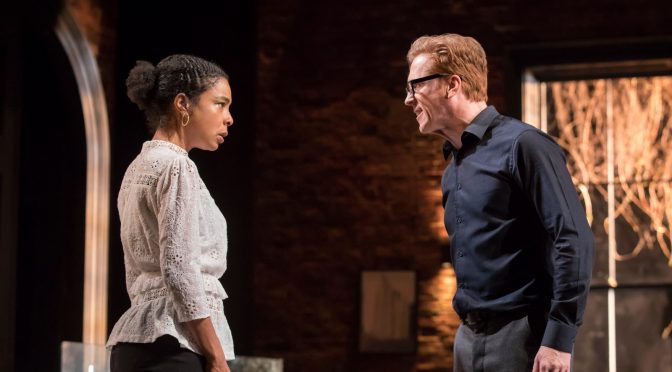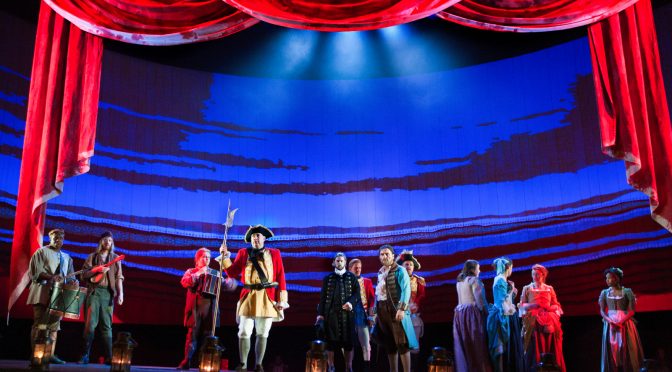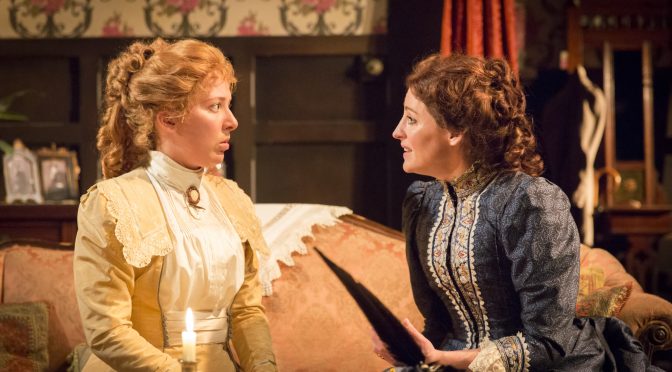This first London revival of Edward Albee’s 2002 play, with Ian Rickson directing a stellar cast, reveals a piece that is riveting and risqué. A superb companion to Albee’s Who’s Afraid of Virginia Woolf?, playing around the corner, it’s also a marital drama with high stakes. Our hero is having an affair… with a goat.
There’s a lot of shock value, cleverly handled. Albee plays with taboos in a fashion that would make younger writers from the ‘In Yer Face’ school proud. The nervous laughter of the audience would be gratifying to him. The language is colourful and its articulate characters – caught in a nightmarish situation – explore all manner of repercussions to the affair.
The cast are superb. Jason Hughes and Archie Madekwe stand as fully formed characters, best friend and son to Martin and Stevie Gray, the couple whose perfect lives didn’t contain a plan about what would happen in the face of zoophilia. It’s a bizarre twist – that’s the point – Albee even describes it as “ludicrous”.
Damian Lewis takes the part of Martin: great as the tortured victim of his obsession and even better when it comes to trying to defend his actions. Sophie Okonedo plays his unfortunate wife, giving a magnetic performance of subtle comic skill. Together they create a believably perfect marriage – think how difficult that is – that roots the show in a painful reality. And the life we see falling apart needs to be convincing: it is important Martin’s obsession is a bolt from the blue.
When the truth is revealed, the objets in the couple’s stylish apartment suffer during an amusingly respectful fighting match (credit to designer Rae Smith here, but also a busy stage management replacing all those broken pots). Martin the “semanticist” tries to pin down what’s going on – to describe facts and feelings. His odd forgetfulness and obsession with grammar are not just for laughs, and Lewis makes them edgy; showing the “pit” of chaos that’s arisen from a chance encounter in a farmyard! With admirable gusto, Rickson orchestrates a swirling mix of trauma, hilarity and shock – making this an awesome experience.
Until 24 June 2017
Photo by Johan Persson



